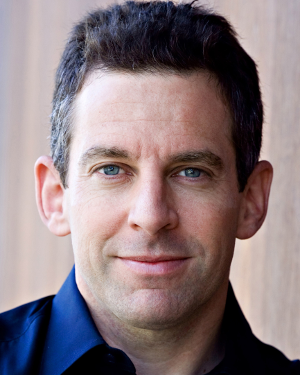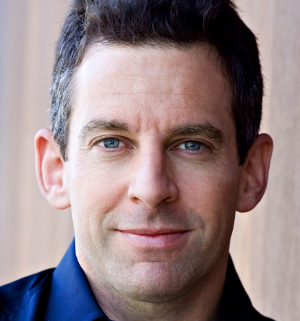Sam Harris Podcast on Cults
I just listened to the Podcast Sam Harris posted a few weeks ago. The link is below and I definitely recommend listening to it.

Sam makes a strong argument that “belief is the primary driver of behavior”. He points to cases such as the Heaven’s Gate cult, in which members took their own lives, or to groups like ISIS, who commit atrocities for their belief. While I don’t disagree, I would add another layer.
Having been in a cult, I know first-hand the power that belief holds.
I remember a day, when I was about a year into my 5 years of being in a religious cult. I got a call from my brother telling me that my Mom had breast cancer. He asked me come home, said she needed me. I was in the middle of a training that I believed was critical to God’s work. I believed the messiah was on the earth and I was receiving God’s words directly from his son, Sun Myung Moon.
The problem with pointing to belief is that it doesn’t go deep enough into understanding the psychological problem. Those of us who are trying to understand how to prevent young people from joining groups like ISIS or from falling prey to any dangerous belief systems need to look further.
Why do we believe? That is what we need to ask if we want to get to the heart of the problem. Tearing apart religious belief systems is something many brilliant secular thinkers spend their energy doing. Round and round they go, debating, deconstructing, pointing to the ridiculousness of specific doctrines, and feeling righteous about their intellectual advantage over believers.
Is it useful? I would say yes. It creates a dialogue in society that is needed. Still, I think it only addresses the surface layer of the problem.
Why do we believe?
We believe because our parents taught us to, society prescribes it, it’s expected.
We believe because we want to be part of a community.
Some may even say we believe because we are lazy. It’s easier to believe in any pre-packaged belief system than to delve into the complexity of evidence based, critical thinking based, approaches to life’s hard questions about life, death, morality and the universe we live in.
Think about the word believe. Here is what dictionary.com says it means: to have confidence in the truth, the existence, or the reliability of something, although without absolute proof that one is right in doing so.
“Without absolute proof”. That’s a problem… but it’s a small price to pay for all the psychological rewards of belief. The problem of not having absolute proof can be argued away philosophically. Much about life, after all, cannot be proven.
To surrender to belief feels great. It’s a huge relief!! Grappling with the mysteries of this existence is hard work. Not knowing absolute answers to question like “what happens when we die?” feels scary. Most people, at certain vulnerable times in life, simply can’t handle the uncertainty. We want answers to life’s hardest questions and we want them now! The simpler the better. Belief makes us feel safe. Sometimes it makes us feel powerful, complete as a person. We grasp for it and cling to it in moments of weakness, vulnerability. Then, we get psychologically trapped. The exit door is extremely hard to open.
The mental captivity that takes place in a totalistic milieu, such as a religious cult or a group like ISIS, can be understood psychologically. Robert J Lifton’s work on totalism is a good place to start.
Once caught in the circular logic of such a group, rational arguments/debates about the belief system have little to no persuasive value.
So yes, Sam Harris is right, it was belief I leaned on when I had to decide if I should come home when my Mom had breast cancer. I chose to stay and do “God’s work”. It makes me cry to this day, but I could not betray my belief – because that belief held my mind captive. Why?
Why is belief so compelling and so hard to betray? This is the important question. We need to ask that question with empathy toward believers. Even the most brilliant thinkers on this planet, making the best case possible for how ridiculous or dangerous certain belief systems are, in most cases, will not be able to stop a suicide bomber. They will most likely not persuade a young potential recruit to ISIS, or any dangerous belief system, to take another path. We cannot “deprogram” a large part of the human species from the psychological chains of belief.
Unless we understand human vulnerability and how attractive belief is to relieving existential pain we cannot prevent a vulnerable human being from falling prey to the appeal of belief.
We need another strategy. We need to shed light on vulnerability. We need to look at how and why we can all be vulnerable at times. Young people, whose minds are developmentally susceptible to coercion, are of most urgent concern. We also need to expose the tactics of mental manipulation used by groups like ISIS. Doctrine/beliefs are simply a tool of mental manipulation. If we frame belief as a tool of manipulation it will be more effective than arguing about how ridiculous it is.




What the heck – zero replies? Can anybody tell me if there’s ANY resources in or near Encino for victims? Definitely a schill. Burn in hell.